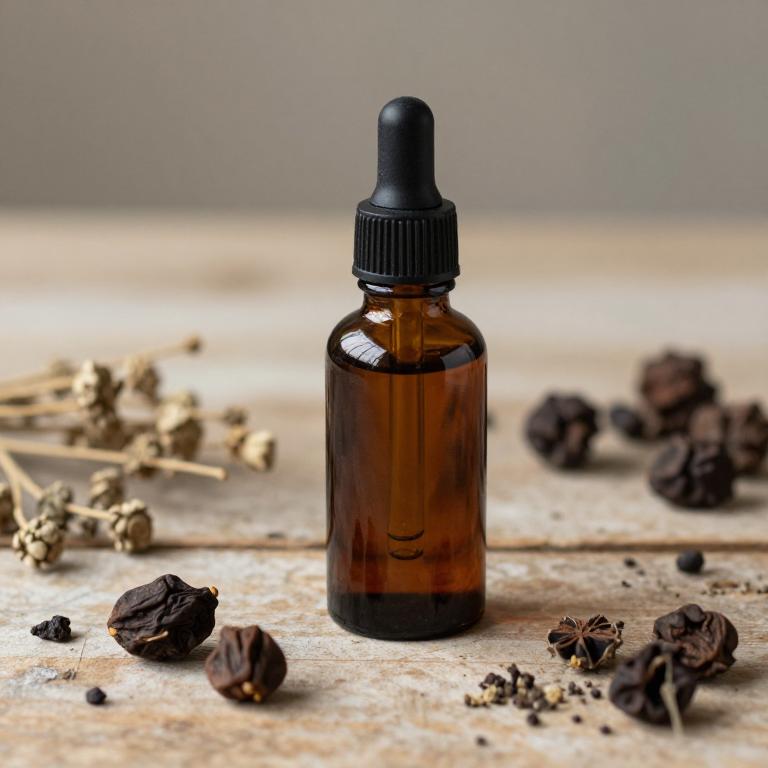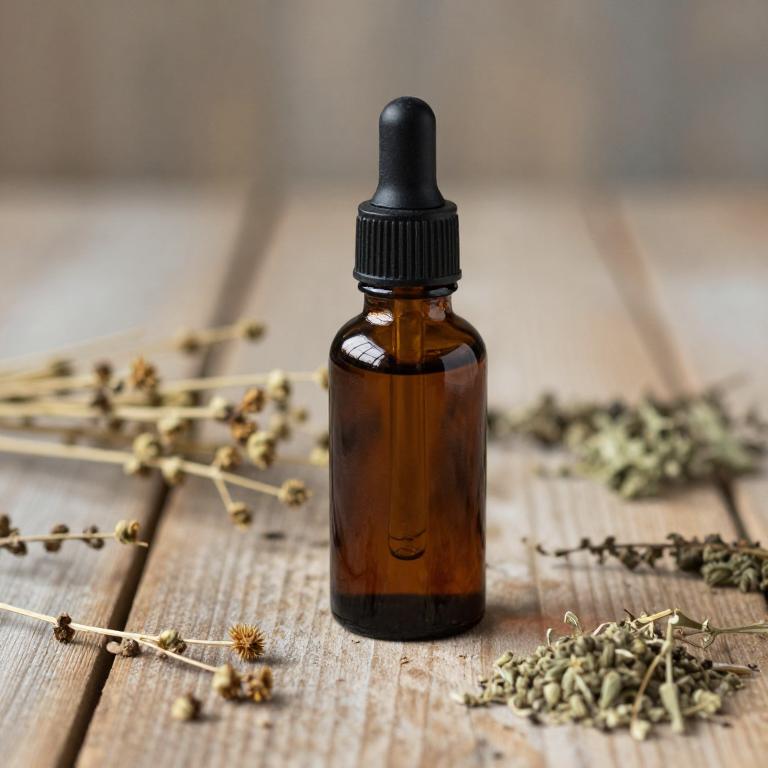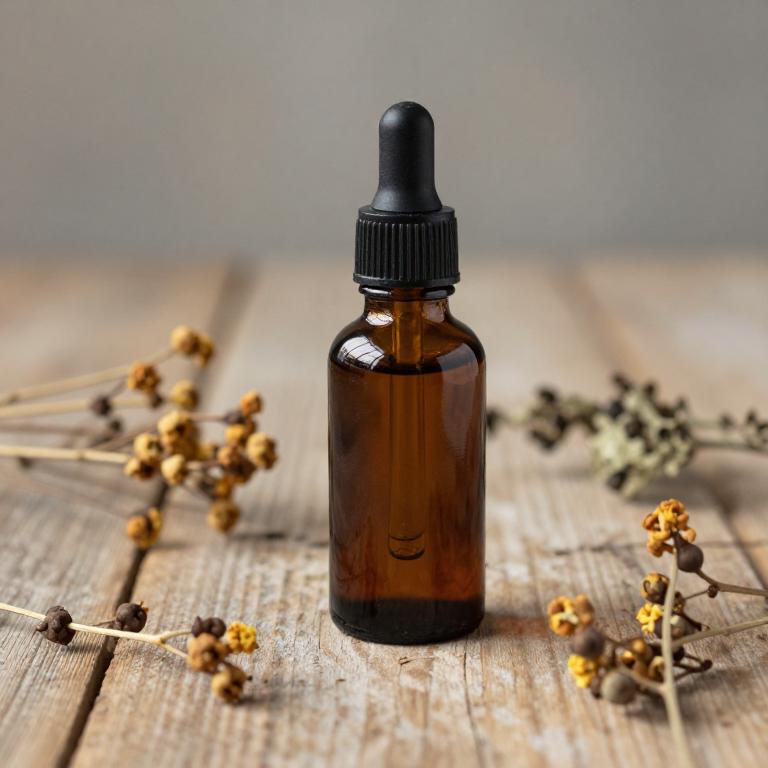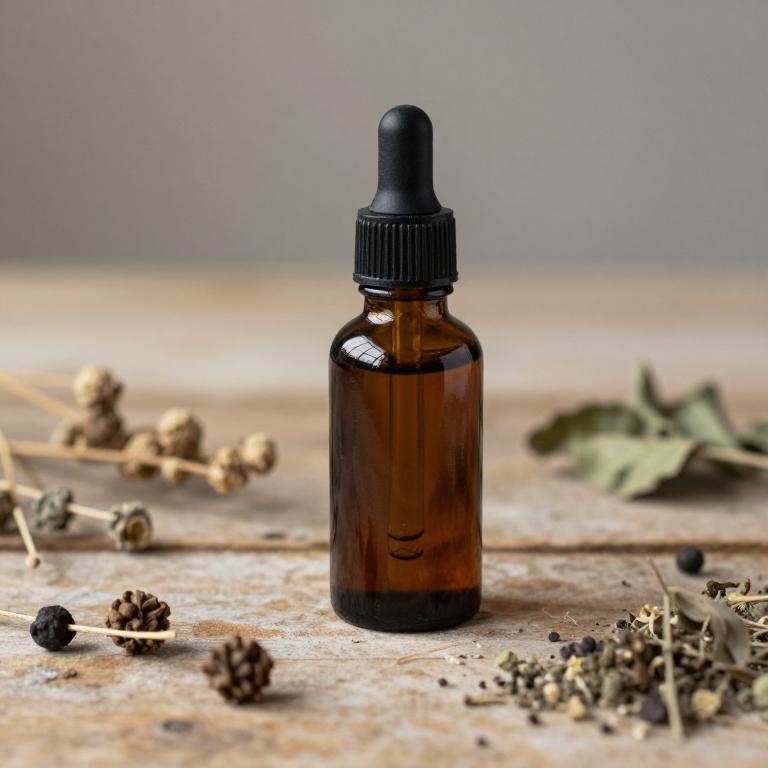10 Best Herbal Tinctures For Gastroenteritis

Herbal tinctures have been traditionally used to support the treatment of gastroenteritis, a condition characterized by inflammation of the stomach and intestines.
These tinctures typically contain a combination of herbs such as ginger, licorice root, and chamomile, which are known for their anti-inflammatory, antispasmodic, and digestive properties. When taken orally, these herbal formulations can help alleviate symptoms like nausea, vomiting, and abdominal cramps by soothing the gastrointestinal tract. However, it is important to consult with a healthcare professional before using herbal tinctures, especially for individuals with existing health conditions or those taking other medications.
While herbal tinctures may offer natural relief, they should not replace conventional medical treatment for severe or persistent cases of gastroenteritis.
Table of Contents
- 1. Thistle (Silybum marianum)
- 2. Ginger (Zingiber officinale)
- 3. Turmeric (Curcuma longa)
- 4. Fennel (Foeniculum vulgare)
- 5. Black pepper (Piper nigrum)
- 6. Dog rose (Rosa canina)
- 7. Cumin (Cuminum cyminum)
- 8. Marshmallow (Althaea officinalis)
- 9. Ceylon cinnamon (Cinnamomum verum)
- 10. St. john's wort (Hypericum perforatum)
1. Thistle (Silybum marianum)

Silybum marianum, commonly known as milk thistle, is a herbal remedy often used in the form of a tincture to support liver function and aid in the recovery from gastroenteritis.
The active compound, silymarin, is believed to have antioxidant and anti-inflammatory properties that may help protect the liver from damage caused by inflammation and toxins. While research on its efficacy for gastroenteritis is limited, some studies suggest that it may help reduce oxidative stress and promote healing of the gastrointestinal tract. Tinctures of Silybum marianum are typically taken orally, often in combination with other herbs or medications, under the guidance of a healthcare professional.
It is important to note that while generally considered safe, milk thistle tinctures should not replace conventional medical treatments for gastroenteritis without consulting a doctor.
2. Ginger (Zingiber officinale)

Zingiber officinale, commonly known as ginger, has been widely used in traditional medicine for its digestive benefits, and its herbal tinctures are increasingly recognized for their potential in treating gastroenteritis.
The active compounds in ginger, such as gingerol and shogaol, possess anti-inflammatory, antioxidant, and antimicrobial properties that can help alleviate symptoms like nausea, vomiting, and abdominal pain associated with gastroenteritis. When prepared as a tincture, ginger can be easily absorbed by the body, offering a concentrated and convenient form of administration. Studies suggest that ginger tinctures may help reduce the duration and severity of gastrointestinal inflammation, supporting the body's natural healing process.
However, it is important to consult a healthcare professional before using ginger tinctures, especially for individuals with underlying health conditions or those taking other medications.
3. Turmeric (Curcuma longa)

Curcuma longa, commonly known as turmeric, has been traditionally used for its anti-inflammatory and antimicrobial properties, making it a potential candidate for herbal tinctures used in the treatment of gastroenteritis.
The active compound, curcumin, is believed to help reduce inflammation in the gastrointestinal tract and may support the healing of the gut lining. Herbal tinctures made from Curcuma longa are often prepared by soaking the dried rhizome in alcohol to extract its bioactive components. These tinctures may be used as a complementary therapy to alleviate symptoms such as nausea, vomiting, and diarrhea associated with gastroenteritis.
However, it is important to consult with a healthcare professional before using curcuma longa tinctures, especially for individuals with existing medical conditions or those taking other medications.
4. Fennel (Foeniculum vulgare)

Foeniculum vulgare, commonly known as fennel, is a herb that has been traditionally used to support digestive health, and its tincture form is often utilized in the treatment of gastroenteritis.
Fennel tinctures contain compounds such as anethole and fenchone, which possess mild antispasmodic and carminative properties that can help alleviate symptoms like bloating, gas, and cramping associated with gastroenteritis. These tinctures may also help reduce inflammation in the gastrointestinal tract and promote the secretion of digestive enzymes, aiding in the digestion of food and the relief of nausea. Due to its soothing effects on the stomach lining, fennel tincture is considered a natural remedy that can complement conventional treatments for gastroenteritis.
However, it is important to consult a healthcare provider before using fennel tinctures, especially for individuals with known allergies or those taking other medications.
5. Black pepper (Piper nigrum)

Piper nigrum, commonly known as black pepper, has been traditionally used in herbal medicine for its potential therapeutic benefits.
When prepared as a tincture, piper nigrum may support digestive health by stimulating the production of digestive enzymes and improving gut motility. Its active compound, piperine, is believed to enhance the absorption of other nutrients and may help alleviate symptoms of gastroenteritis such as nausea and bloating. However, while some anecdotal evidence suggests its use in digestive disorders, more clinical research is needed to confirm its efficacy and safety for treating gastroenteritis.
As with any herbal remedy, it is advisable to consult a healthcare professional before use, especially for individuals with pre-existing health conditions or those taking medications.
6. Dog rose (Rosa canina)

Rosa canina, also known as dog rose, has been traditionally used in herbal medicine for its anti-inflammatory and astringent properties, making it a potential remedy for gastroenteritis.
The tincture form of Rosa canina is often prepared by soaking the dried flowers and berries in alcohol, which helps extract the active compounds such as flavonoids and tannins. These compounds may help soothe the gastrointestinal lining and reduce symptoms like diarrhea and inflammation. While some studies suggest that Rosa canina may support digestive health, it is important to consult a healthcare provider before using it, especially for individuals with chronic or severe gastroenteritis.
As a complementary therapy, Rosa canina tinctures may offer relief, but they should not replace conventional medical treatment.
7. Cumin (Cuminum cyminum)

Cuminum cyminum, commonly known as cumin, has been traditionally used in herbal medicine for its digestive benefits, and its tincture form is often utilized to support gastrointestinal health.
Cumin tinctures are believed to aid in alleviating symptoms of gastroenteritis, such as bloating, nausea, and indigestion, due to their carminative and antispasmodic properties. The essential oils in cumin, including compounds like cuminaldehyde and limonene, contribute to its ability to soothe the digestive tract and reduce inflammation. While some studies suggest that cumin may help regulate gut motility and reduce oxidative stress, it is important to consult a healthcare provider before using cumin tinctures, especially for individuals with pre-existing conditions or those taking medications.
Overall, cumin tinctures can serve as a complementary remedy for gastroenteritis, though they should not replace professional medical advice or treatment.
8. Marshmallow (Althaea officinalis)

Althaea officinalis, commonly known as marshmallow root, has been traditionally used in herbal medicine for its soothing properties, particularly for digestive ailments such as gastroenteritis.
Its tinctures are prepared by extracting the mucilage-rich root in alcohol, which helps preserve its active compounds and enhance bioavailability. These tinctures are valued for their ability to coat and protect the mucous membranes of the digestive tract, reducing inflammation and irritation caused by gastroenteritis. The anti-inflammatory and demulcent effects of Althaea officinalis tinctures may help alleviate symptoms like nausea, vomiting, and diarrhea.
However, it is important to consult a healthcare professional before using these tinctures, especially for prolonged periods or in combination with other medications.
9. Ceylon cinnamon (Cinnamomum verum)

Cinnamomum verum, commonly known as true cinnamon, has been traditionally used in herbal medicine for its potential therapeutic effects on gastrointestinal health.
When prepared as a tincture, Cinnamomum verum may help alleviate symptoms of gastroenteritis due to its antimicrobial and anti-inflammatory properties. The essential oils in cinnamon, such as cinnamaldehyde, are believed to support digestive function and reduce inflammation in the gastrointestinal tract. However, it is important to consult with a healthcare professional before using cinnamon tinctures, as they may interact with certain medications or conditions.
While some anecdotal evidence suggests its benefit, more scientific research is needed to fully confirm its efficacy for treating gastroenteritis.
10. St. john's wort (Hypericum perforatum)

Hypericum perforatum, commonly known as St. John's Wort, is traditionally used in herbal medicine for its potential anti-inflammatory and antimicrobial properties.
When prepared as a tincture, it may support the digestive system by reducing inflammation in the gastrointestinal tract, which can be beneficial for individuals suffering from gastroenteritis. The active compounds in hypericum perforatum, such as hypericin and hyperforin, are believed to contribute to its therapeutic effects by modulating immune responses and combating pathogenic microorganisms. However, it is important to note that while some studies suggest its potential benefits, more research is needed to confirm its efficacy and safety for treating gastroenteritis specifically.
As with any herbal remedy, it is advisable to consult a healthcare professional before use, especially if taking other medications, due to possible interactions.